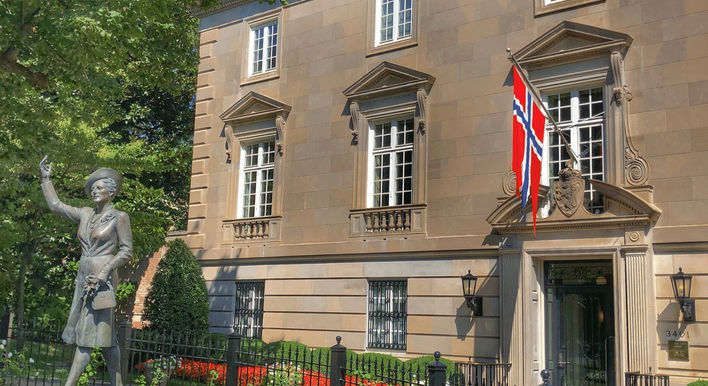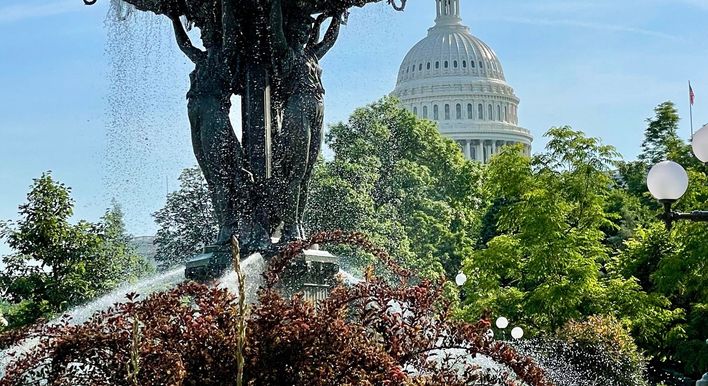The inscription “His Wife” on the headstone of Marguerite Higgins at Arlington National Cemetery doesn’t begin to do her justice. Her husband William Hall was an Air Force general who is buried with her. And the regulations are such that inscription describes her relationship to him rather than her own incredible story.
A tour we think you'll love
Marguerite Higgins represents the best of American journalism. She’s born in Hong Kong, studies French at Berkeley and receives a master’s in journalism from Columbia. She is witness to some of the great events of the last century.
She works for the New York Herald Tribune, and she asks her editors to send her to Europe to cover World War II. This is met with resistance. It was not easy for women to break into journalism, a profession heretofore reserved for men. But she perseveres and gets the assignment.
In Europe she witnesses the liberation of the Dachau concentration camp. She covers the Nuremberg trials and the Soviet blockade of Berlin.
She becomes chief of the Tribune’s Tokyo bureau and is one of the first reporters in Korea when war breaks out there. Initially the army bans women reporters, but she appeals to General Douglas MacArthur who sends a telegram saying: “Ban on women correspondents in Korea has been lifted. Marguerite Higgins is held in highest professional esteem by everyone.”
For her Korean reporting she becomes the first woman to win a Pulitzer Prize for foreign correspondence. She continues covering foreign affairs and interviews Franco, Khrushchev, Nehru among others.
She joins Newsday and goes to cover Vietnam. But while there she contracts a deadly tropical disease. She is hospitalized and she knows she is dying but she continues to write columns up until the end. She dies at age 45.





